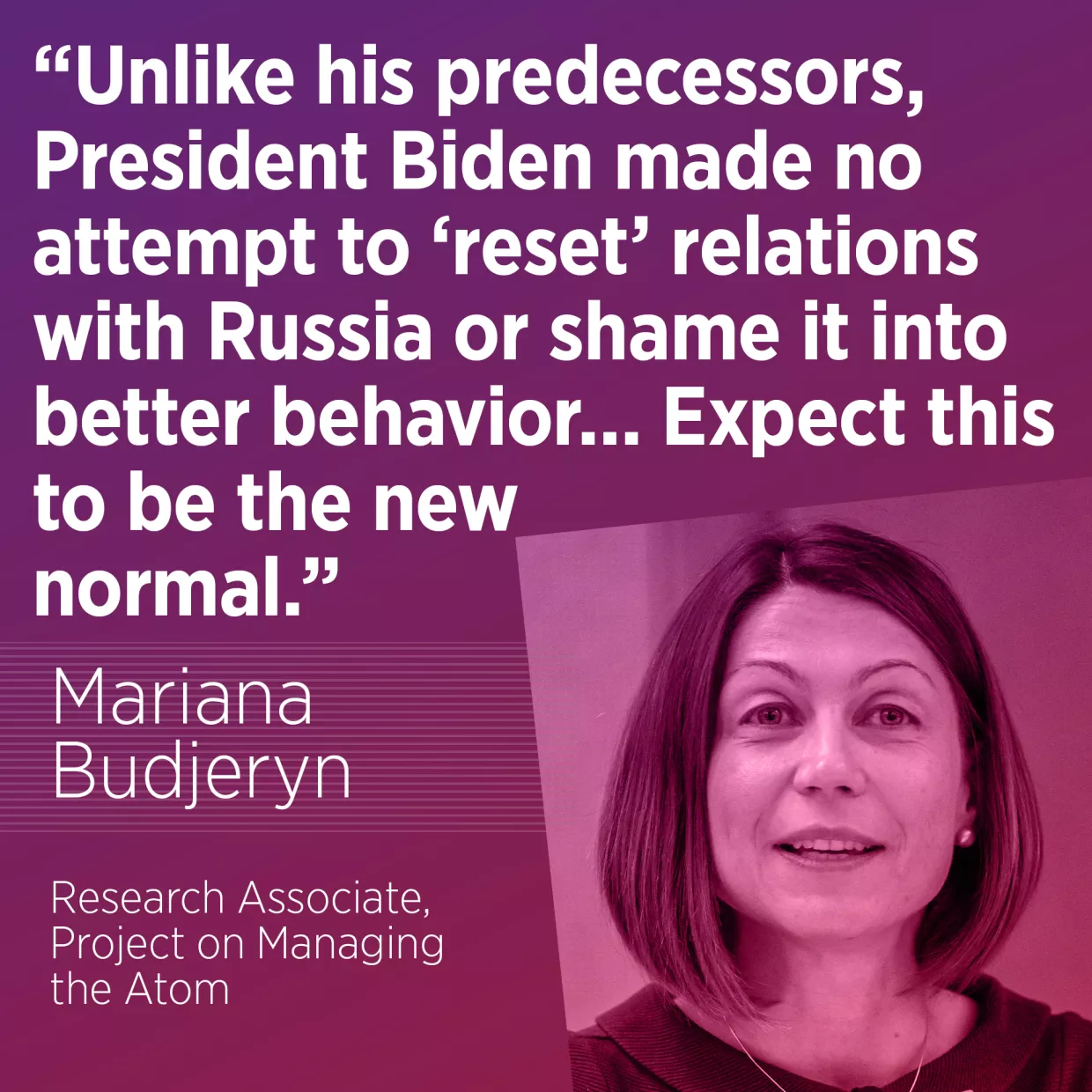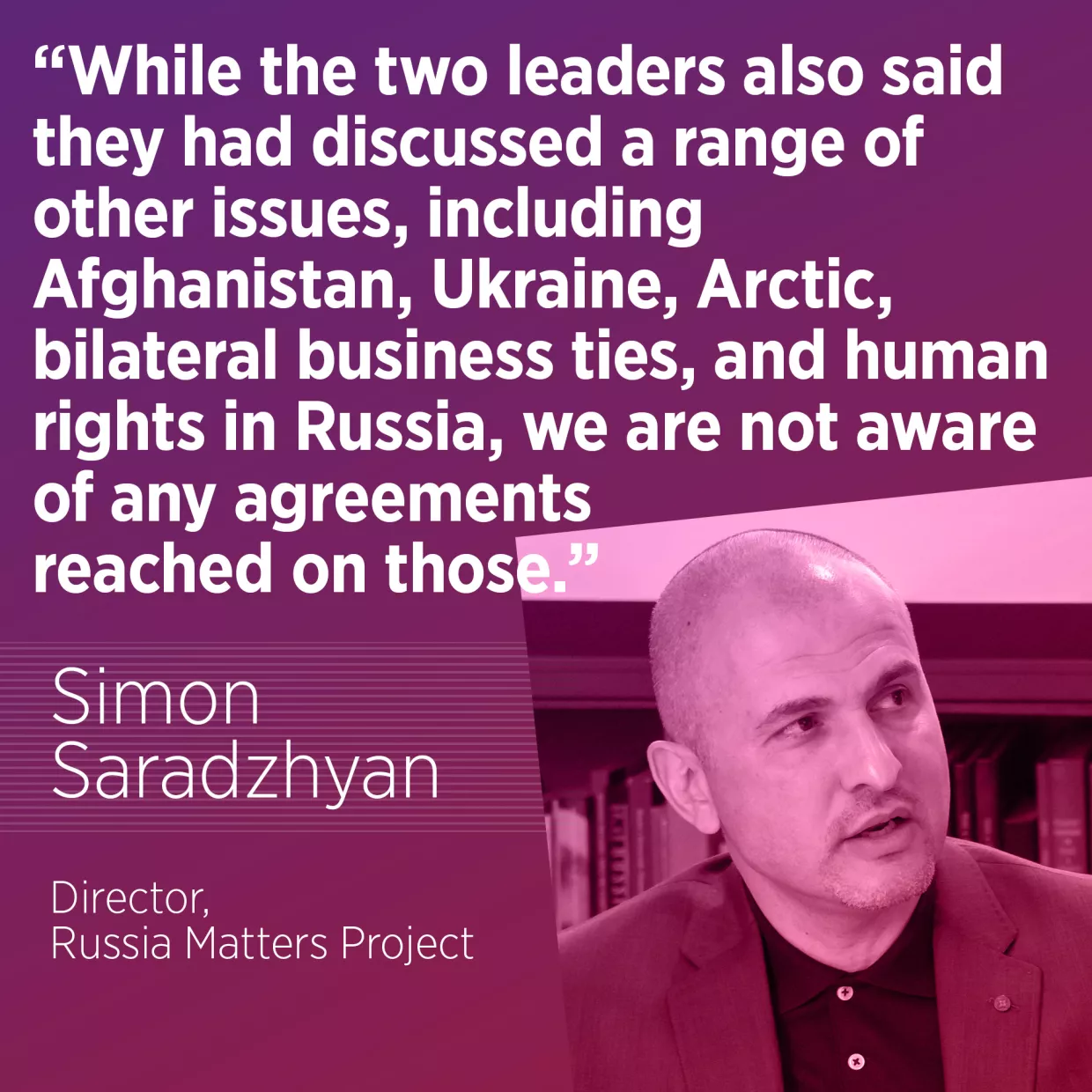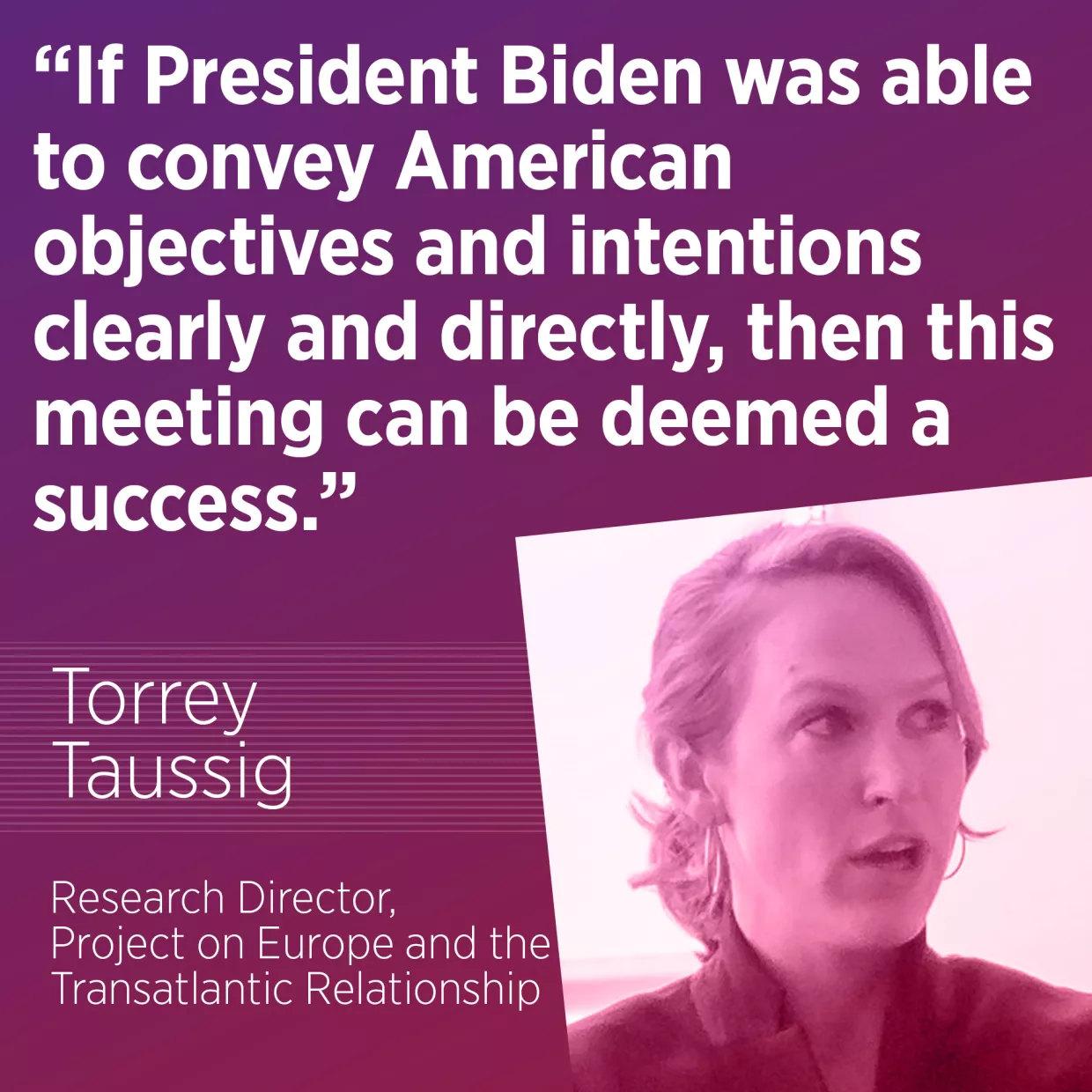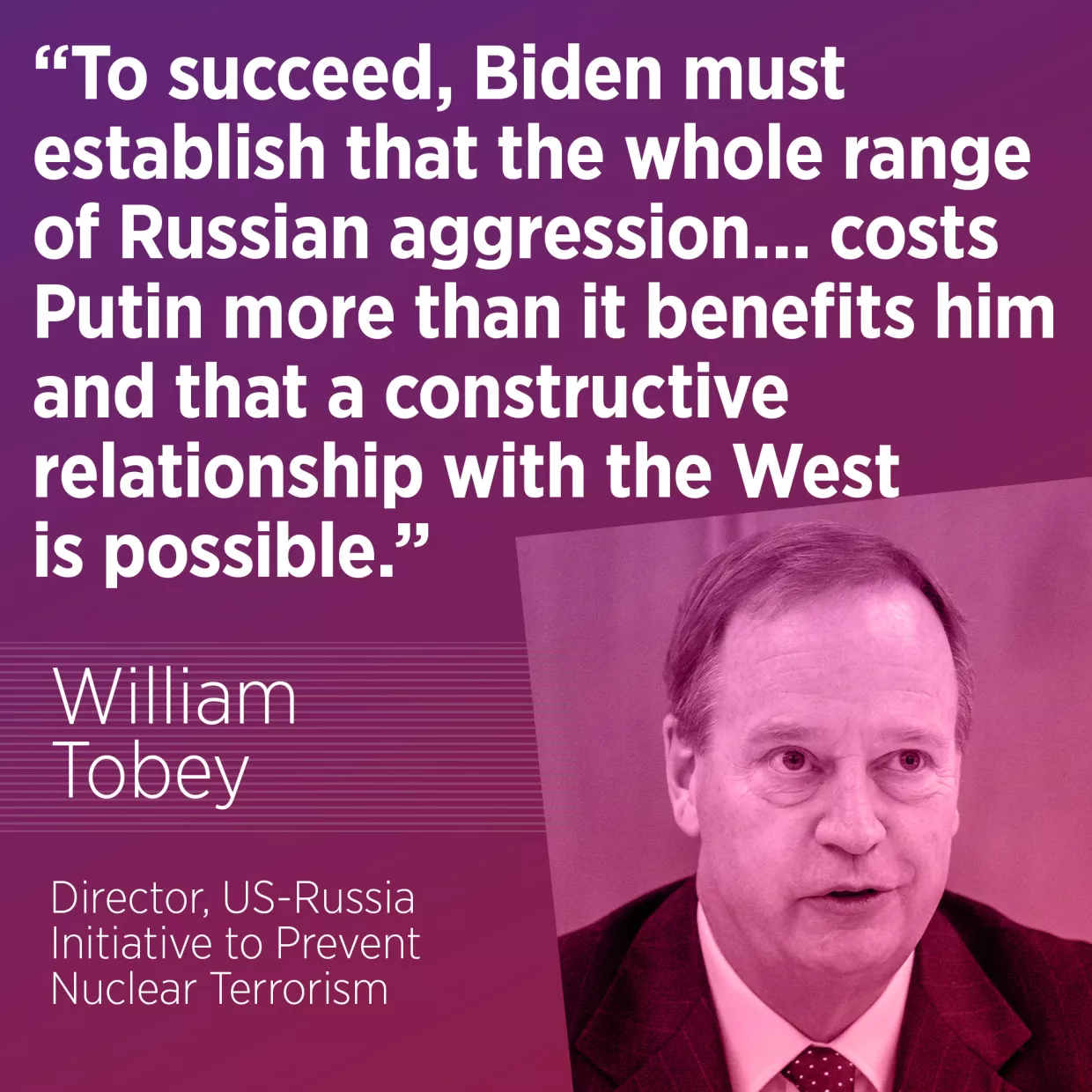Following the June 16 Biden-Putin Summit, several Belfer Center experts shared their thoughts on how the meeting might impact the U.S.-Russia relationship.

MARIANA BUDJERYN, Research Associate, Project on Managing the Atom
“The reaffirmation at the Geneva summit by Biden and Putin, the presidents of the world’s two biggest nuclear states, of the principle that a nuclear war cannot be won and must never be fought is symbolically important. The launch of the strategic stability and cyber dialogue between Washington and Moscow is practically important. Of a more fundamental importance, however, is the shift in the U.S. Russia policy toward pragmatism. Unlike his predecessors, President Biden made no attempt to ‘reset’ relations with Russia or shame it into better behavior. The goal of the summit was not to resolve the underlying differences, which are significant, but to explore the possibility of limited and necessary cooperation despite lingering antagonisms and distrust. Expect this to be the new normal.”

SIMON SARADZHYAN, Director, Russia Matters Project
“As expected, the summit yielded rather modest results: a short statement on strategic stability coupled with pledges to revive DOS-MFA dialogue on the issue and enter consultations on red lines in the cyber domain and exchange of prisoners. While the two leaders also said they had discussed a range of other issues, including Afghanistan, Ukraine, Arctic, bilateral business ties, and human rights in Russia, we are not aware of any agreements reached on those. Of the issues on which the two leaders did agree to pledge further dialogue, strategic stability and cyber red lines are the most impactful when it comes to national security of the two countries. I hope the revived dialogue on these issues will yield substantive agreements that would lower risks of accidental war between the two nuclear powers, which has increased as relations between them deteriorated.”

TORREY TAUSSIG, Research Director, Project on Europe and the Transatlantic Relationship
“Unlike previous U.S. administrations, President Biden did not go to Geneva seeking a reset or a breakthrough in U.S.-Russia relations. Instead, President Biden’s objective in meeting with President Putin was to convey clearly that certain Russian transgressions (ie. cyber-attacks on U.S. critical infrastructure) were off-limits and would be met with a firm U.S. response. According to President Biden in his press conference, he delivered this message face-to-face and discussed a long list of agenda items ranging from Syria and Ukraine to Iran and the Arctic. The bar was set low for this summit and there were no illusions about President Putin changing his aggressive tack abroad or his increasing authoritarianism at home. But if President Biden was able to convey American objectives and intentions clearly and directly, then this meeting can be deemed a success.”

WILLIAM TOBEY, Director, U.S.-Russia Initiative to Prevent Nuclear Terrorism
“Observers often overestimate the personal dimension of Summits. Nation-states base policy on capabilities, values, and interests, not the relationship between their leaders. The Biden-Putin meeting was different. First, Putin’s grip on Russia is absolute; he is the state. Second, relations between Washington and Moscow are so bad that a new modus vivendi must precede any progress on important issues. Accreting small agreements will not suffice. To succeed, Biden must establish that the whole range of Russian aggression—changing borders by force, election interference, assassinating foes with chemical weapons, cyberattacks, brandishing nuclear weapons, etc.—costs Putin more than it benefits him and that a constructive relationship with the West is possible. Unfortunately, America has attempted three post-Cold War ‘resets’ with Russia and all failed.”
See additional thoughts on the Summit from Mariana Budjeryn and also from Steven E. Miller, Director of the Belfer Center's International Security Program, in the Bulletin of Atomic Scientists.
Budjeryn, Mariana, Simon Saradzhyan, Torrey Taussig and William H. Tobey. “Will the Biden-Putin Summit Impact U.S.-Russia Relations?.” Belfer Center for Science and International Affairs, Harvard Kennedy School, June 17, 2021
